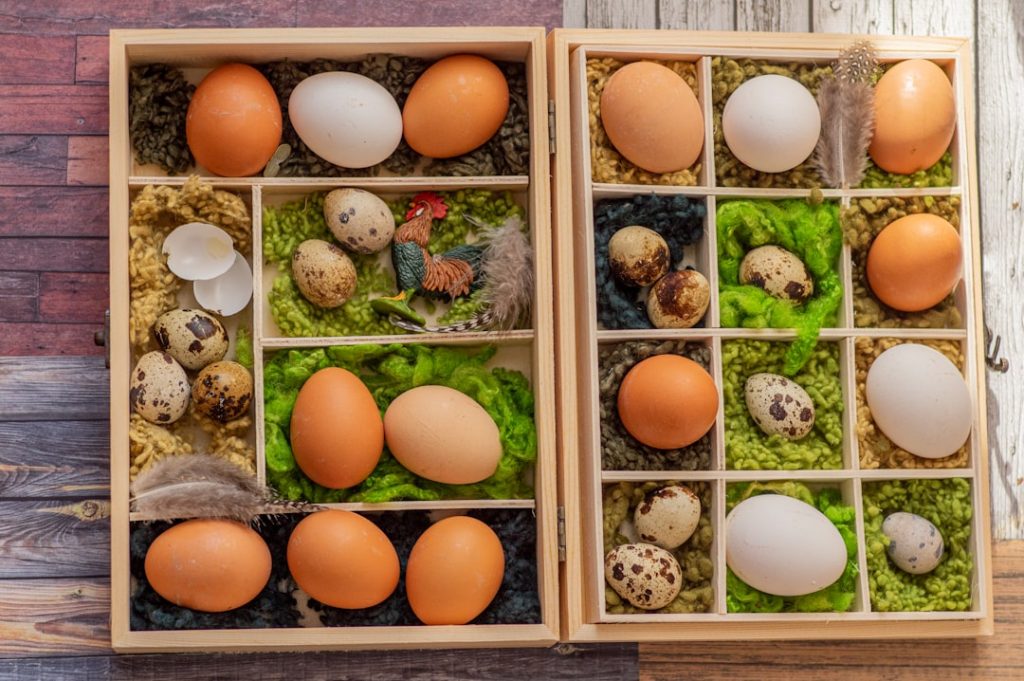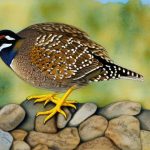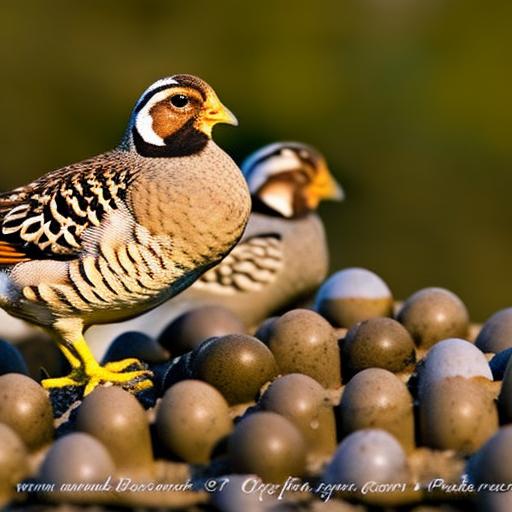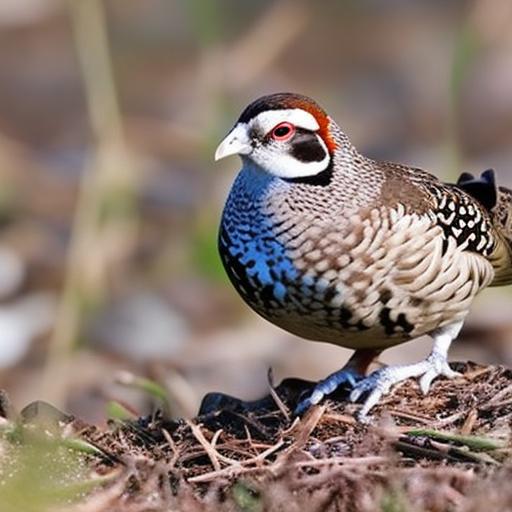Pharaoh quail, also known as Coturnix coturnix, are popular birds for breeding due to their small size, low maintenance, and high egg production. They are a great option for beginners in the world of poultry breeding, as they are easy to care for and can be raised in a small space. Pharaoh quail are also known for their fast growth and early maturity, making them a profitable option for those looking to breed them for meat or eggs.
Breeding Pharaoh quail can be a rewarding experience, whether you are looking to start a small backyard flock or a commercial breeding operation. With the right knowledge and preparation, you can successfully breed and raise healthy quail for eggs, meat, or even as pets. In this article, we will explore the key steps and considerations for breeding Pharaoh quail, from choosing the right breeding stock to caring for the chicks and ensuring their health and nutrition.
Table of Contents
Key Takeaways
- Phararoh quail breeding is a rewarding hobby that requires careful consideration of breeding stock, environment, incubation process, chick care, health, and nutrition.
- When choosing breeding stock, select healthy, active, and unrelated quails with desirable traits such as good egg production and strong genetics.
- Setting up the breeding environment involves providing adequate space, nesting areas, and proper lighting to encourage natural breeding behavior.
- The breeding and incubation process requires attention to temperature, humidity, and turning the eggs regularly for successful hatching.
- Caring for the chicks involves providing a warm, clean, and safe environment, along with proper nutrition and access to water.
Choosing the Right Breeding Stock
When it comes to breeding Pharaoh quail, selecting the right breeding stock is crucial for the success of your breeding program. Look for healthy, active birds with good body conformation and strong legs. It’s important to choose birds that are free from any visible signs of disease or deformities. Selecting birds with desirable traits such as high egg production, early maturity, and good temperament will help ensure the success of your breeding program.
It’s also important to consider genetic diversity when choosing your breeding stock. Avoid breeding closely related birds to prevent inbreeding and maintain genetic health within your flock. Look for unrelated birds from reputable breeders to introduce new genetic traits and maintain a healthy and robust breeding population. By carefully selecting your breeding stock, you can lay the foundation for a successful and sustainable Pharaoh quail breeding program.
Setting Up the Breeding Environment
Creating the right breeding environment is essential for the health and productivity of your Pharaoh quail. Start by providing a spacious and well-ventilated coop or cage that allows for natural light and fresh air. The coop should be predator-proof and provide protection from extreme weather conditions. Ensure that the flooring is covered with clean bedding such as straw or wood shavings to absorb moisture and provide a comfortable environment for the birds.
Nesting boxes should be provided to encourage natural mating behavior and provide a safe and comfortable space for laying eggs. The nesting boxes should be filled with clean, dry bedding to create a cozy environment for the hens to lay their eggs. Additionally, providing a balanced diet with access to clean water is essential for maintaining the health and fertility of your breeding stock. Consider supplementing their diet with calcium and other essential nutrients to support egg production and overall health.
Breeding and Incubation Process
Breeding Pharaoh quail is a relatively straightforward process, as they are prolific layers and breed readily in captivity. To encourage natural mating behavior, provide a ratio of one male to every three to five females in your breeding flock. The males will court the females by performing a mating dance and making distinct calls to attract their attention. Once mating occurs, the hens will lay eggs in the nesting boxes provided.
If you are looking to maximize egg production, consider collecting the eggs daily and storing them in a cool, dry place until you are ready to start the incubation process. Alternatively, you can allow the hens to incubate the eggs themselves, as they are excellent mothers and will diligently care for their chicks once they hatch. If you choose to use an incubator, carefully follow the manufacturer’s instructions for temperature, humidity, and turning the eggs to ensure a successful hatch.
Caring for the Chicks
Once the eggs hatch, it’s important to provide a warm and safe environment for the newly hatched chicks. A brooder box with a heat lamp or heat pad can provide the necessary warmth for the chicks to thrive. The brooder box should be lined with clean bedding and equipped with feeders and waterers that are easily accessible to the chicks.
It’s important to monitor the chicks closely during their first few weeks of life to ensure they are eating, drinking, and growing properly. Provide a balanced chick starter feed that is high in protein and essential nutrients to support their rapid growth and development. Additionally, consider adding a vitamin and electrolyte supplement to their water to boost their immune system and overall health.
As the chicks grow, gradually introduce them to the outdoor environment to acclimate them to natural light and fresh air. This will help prepare them for life in the breeding environment and promote their overall health and well-being.
Health and Nutrition Considerations

Maintaining the health and nutrition of your Pharaoh quail is essential for successful breeding and overall productivity. Provide a balanced diet that is high in protein to support egg production, growth, and overall health. Commercially available quail feed is formulated specifically for quail and provides essential nutrients such as protein, vitamins, and minerals.
In addition to a balanced diet, it’s important to provide access to clean water at all times. Regularly clean and refill waterers to prevent contamination and ensure that your quail have access to fresh, clean water throughout the day. Consider adding a probiotic supplement to their water to support their digestive health and boost their immune system.
Regularly monitor your quail for any signs of illness or disease, such as lethargy, decreased appetite, or abnormal droppings. If you notice any signs of illness, isolate the affected birds immediately and consult with a veterinarian experienced in poultry care for proper diagnosis and treatment.
Tips for Successful Phararoh Quail Breeding
– Provide a spacious and well-ventilated coop or cage for your breeding stock
– Select healthy breeding stock with desirable traits such as high egg production and early maturity
– Avoid inbreeding by introducing new genetic traits from unrelated birds
– Provide nesting boxes filled with clean bedding for hens to lay their eggs
– Collect eggs daily for maximum egg production or allow hens to incubate eggs naturally
– Provide a warm brooder box with clean bedding, heat source, feeders, and waterers for newly hatched chicks
– Monitor chicks closely during their first few weeks of life and provide a balanced chick starter feed
– Gradually introduce chicks to the outdoor environment to acclimate them to natural light and fresh air
– Provide a balanced diet high in protein and essential nutrients for breeding stock
– Regularly monitor quail for signs of illness or disease and consult with a veterinarian if needed
In conclusion, breeding Pharaoh quail can be a rewarding experience when approached with the right knowledge and preparation. By carefully selecting your breeding stock, creating the right breeding environment, and providing proper care and nutrition, you can successfully breed healthy quail for eggs, meat, or even as pets. With attention to detail and regular monitoring of your flock’s health and productivity, you can enjoy a successful Pharaoh quail breeding program for years to come.
If you’re interested in learning more about raising and breeding quail, you might also want to check out this informative article on the best chicken coop designs for your poultry. Whether you’re considering a traditional coop like the one in Chester, SC, or exploring the benefits of an A-frame chicken coop, understanding the different housing options for your birds can greatly impact their health and productivity.
FAQs
What is pharaoh quail breeding?
Pharaoh quail breeding refers to the process of raising and breeding Pharaoh quails, also known as Coturnix coturnix. This involves creating suitable conditions for the quails to lay eggs, hatch chicks, and raise them to maturity.
What are the basic requirements for pharaoh quail breeding?
Basic requirements for pharaoh quail breeding include a suitable enclosure or cage, proper nutrition, access to clean water, and appropriate temperature and lighting conditions. Additionally, providing nesting materials and a suitable breeding environment is essential.
How long does it take for pharaoh quails to reach maturity?
Pharaoh quails typically reach maturity at around 6-8 weeks of age. At this point, they are ready to start laying eggs and can be bred for reproduction.
What do pharaoh quails eat?
Pharaoh quails are omnivorous and can be fed a diet of commercial quail feed, supplemented with fresh greens, insects, and seeds. It is important to provide a balanced diet to ensure their health and reproductive success.
How many eggs do pharaoh quails lay?
Pharaoh quails are prolific layers and can lay up to 300 eggs per year, with each quail laying an average of 12-14 eggs per month during peak laying periods.
What are the common challenges in pharaoh quail breeding?
Common challenges in pharaoh quail breeding include maintaining optimal breeding conditions, preventing diseases, and managing the breeding population to avoid inbreeding. Additionally, ensuring proper nutrition and addressing any behavioral issues among the quails are important considerations.
Meet Walter, the feathered-friend fanatic of Florida! Nestled in the sunshine state, Walter struts through life with his feathered companions, clucking his way to happiness. With a coop that’s fancier than a five-star hotel, he’s the Don Juan of the chicken world. When he’s not teaching his hens to do the cha-cha, you’ll find him in a heated debate with his prized rooster, Sir Clucks-a-Lot. Walter’s poultry passion is no yolk; he’s the sunny-side-up guy you never knew you needed in your flock of friends!







